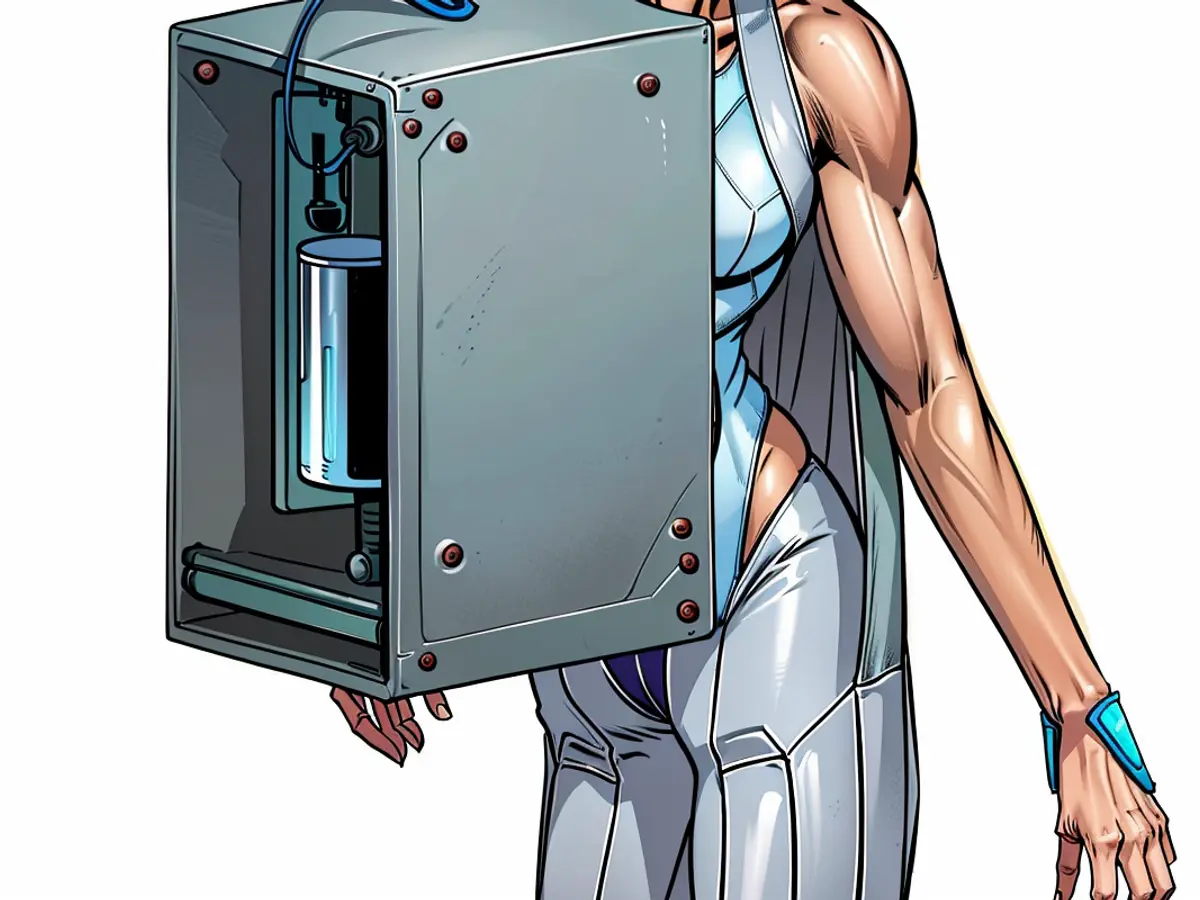Urine is recycled into drinking water during outdoor use
Instead of carrying diapers all over space, spacefarers should be equipped with a new hygiene system in the future. This system will recycle urine to make it drinking water again, allowing for extended spacewalks and even multiple lunar walks. The hygiene system can be worn as a backpack.
A new hygiene system for spacesuits is reminiscent of the stillsuit from the film series "Dune": Urine can be recycled with this system to approximately 85%, making it available again as drinking water for astronauts, according to the developer team as reported in the journal "Frontiers in Space Technologies". Currently, NASA astronauts have only about a liter of water in their spacesuits, it was stated. "This is not enough for the planned longer spacewalks on the moon, which can last up to 10 hours and even in an emergency up to 24 hours", explained Etlin. In such an emergency, water from recycled urine would prevent dehydration.
Urine-Recycling like on the ISS
The urine is collected in silicone containers with a skin-friendly surface using this system. Two different forms take into account the differences in the female and male anatomy. A moisture sensor activates a vacuum pump, which quickly removes urine from the body. In a two-filter arrangement, the water is first drawn out of the urine by osmosis into a concentrated salt solution. Subsequently, the water is pressed out of the salt solution through reverse osmosis and has drinking water quality.
Apart from "Dune", another inspiration for the system is the water recycling system on the ISS. However, it is much larger. Etlin, Mason and colleagues have managed to significantly reduce the size of the system, making it portable in a backpack. The backpack is about eight kilograms heavy, but due to the significantly lower gravity in Earth orbit or on the moon, the weight is not as noticeable. The system requires electrical power, which, according to the information provided, consumes less than ten percent of the current energy requirement of a spacesuit.
"Our system can be tested under simulated minimal gravity conditions, as gravitation is the most important space factor we need to consider", said Mason. Before the system can be used in a space mission, functionality and safety will be ensured. The generated drinking water could be enriched with electrolytes and nutrients to also supply astronauts with energy during long missions.
The water recycling system developed for space travel is inspired by the methods used on the International Space Station. This portable system, when used effectively, could reduce the weight of equipment carried by astronauts during spacewalks and lunar missions. Integrating such a system into astronaut education could encourage curiosity about the Universe and the importance of resource conservation in space travel.








